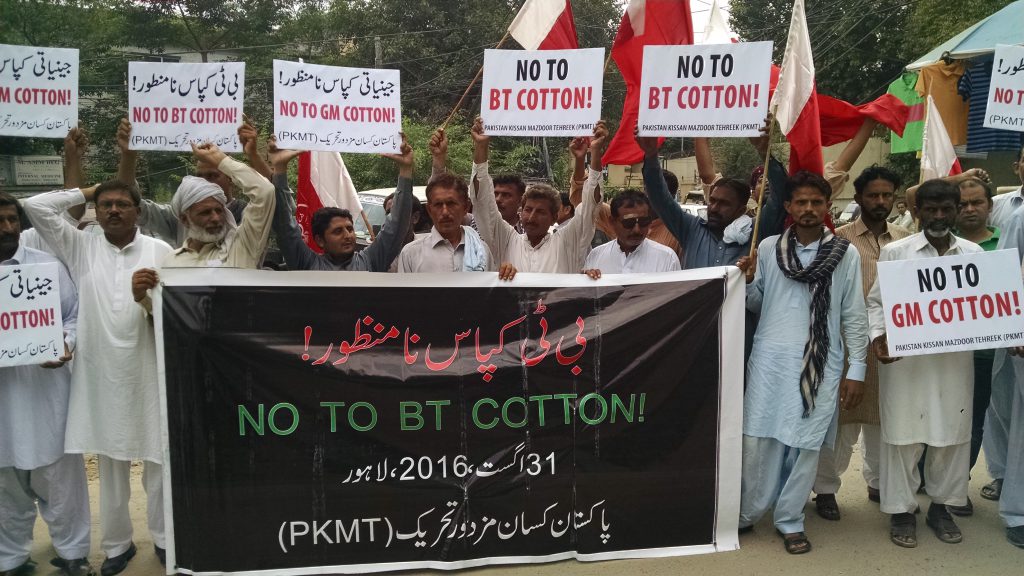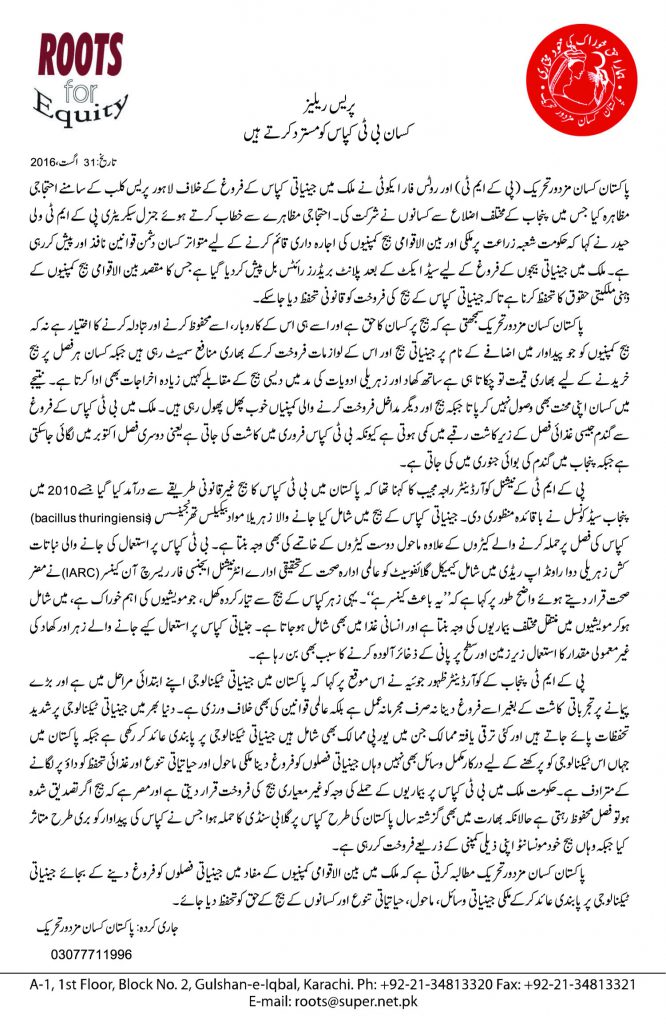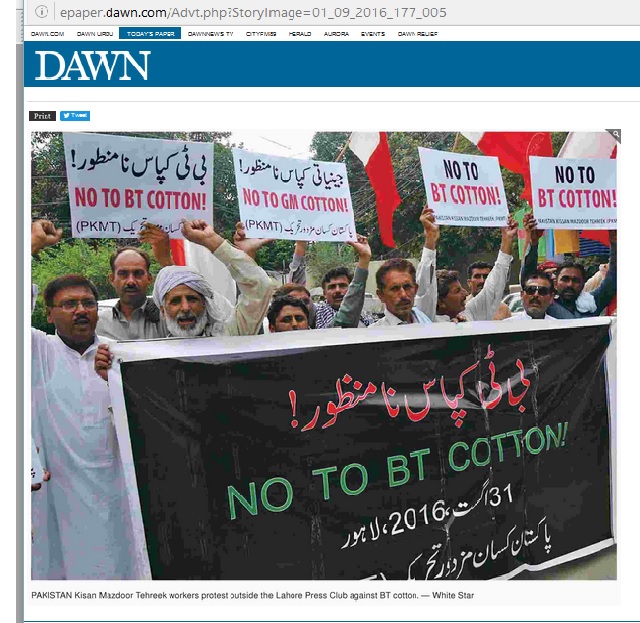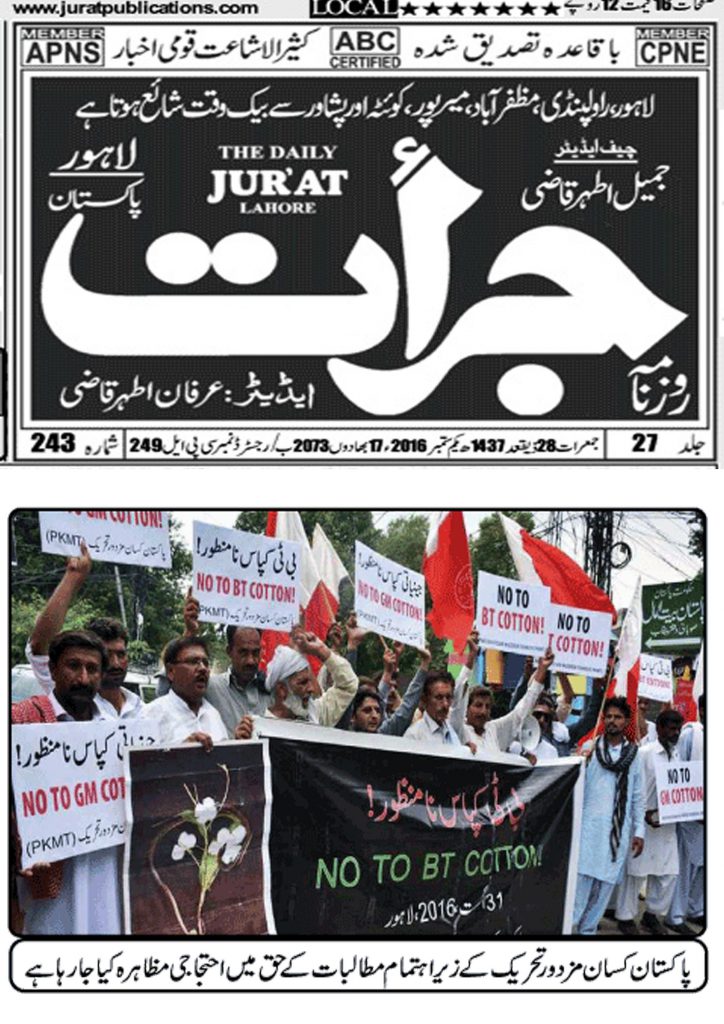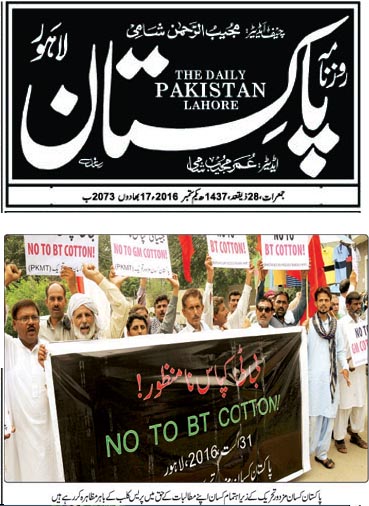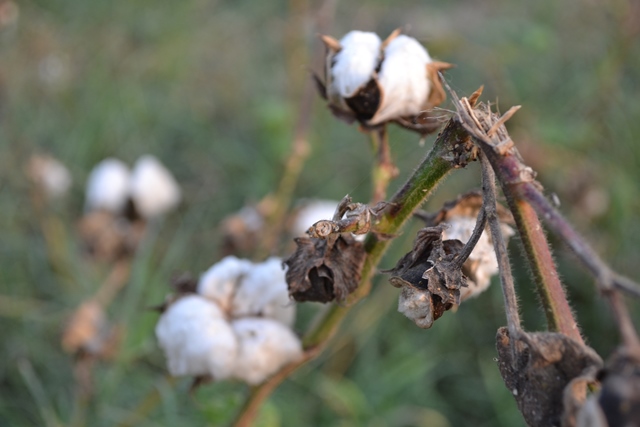A Brief prepared by Pakistan Kissan Mazdoor Tehreek and Roots for Equity
Seed was born free. It has multiple functions: it is the reservoir of genetic resources, it is the basic unit for our food, it holds life in its core, essential for maintain human and all life on this planet. Commodification of seed is commodification of life!
Following are some points elaborated to highlight why Sojhla for Social Change, Pakistan Kissan Mazdoor Tehreek (PKMT), Roots for Equity and other people’s and civil society organizations have been opposing in general the Trade-related Aspects of Intellectual Property Rights Act (TRIPs) and specifically the Pakistan Seed (Amended) Act 2015, and the Plant Breeders Rights Act 2016.
Farmers Collective Rights over Seed and Patenting of Life Forms
Seed, a genetic resource is a gift of nature and belongs to no one person or corporation but is owned collectively. But there is no doubt, that it was farmers who over many millennia experimented, re-generated, sorted, propagated and saved seeds. It was the collective knowledge of farmers and rural communities that allowed hundred of varieties of grains, vegetables, fruits, and flowers to be domesticated for human civilization. Farmers saved seed from one generation to the next, a process that went on for millions of years. There were thousands of varieties that were developed by farmers, but even though we farmers came out with new varieties we respected and followed the rules of nature, and shared the genetic resources openly with all. We, who have our history based in the Indus Valley Civilization, were the first to domesticate seed and through our knowledge and experience pass the best of genetic resources to our generations. Therefore, we farmers believe that first seed is free; it is a carrier of life and being a living thing it cannot be shackled, it cannot be owned by individuals or companies. If at all, it is the collective property of farmers; we have been its custodians, its guardians. We have respected our position of custodians and hence shared it fully and openly with all those who wish to use it as food, as a source of health, as a source medicine and of life.
Risks to Biodiversity:
It needs to be pointed out that with the advent of Green Revolution in the 1960s, seed has been forced out of our care and custody and turned into a commodity. With corporate control over seeds, with promotion of hybrid varieties and now genetically modified seeds we have lost much of the indigenous varieties in just 50 years; genetic diversity which was saved through hundreds of millennia were lost in less than half a century!
If we allow genetically modified seeds to take over our food and agriculture this will further the process of destroying biodiversity. Hybrid varieties and genetically modified seeds are based on monoculture and uniformity; they belie the intricate interwoven complexity of all forms of biodiversity with each other. Seed has been turned into a machine whose worth is weighed by productivity. But seed’s function is not only productivity: its function is in promoting various forms of life, of which human intelligence has as yet not grasped enough to turn it into a only an addition, subtraction formula. Plant life is very complex, it’s a food chain as well as shelter for millions of other life forms from birds to reptiles, to insects and millions and millions of microorganisms. Uniformity in plant life negates diversity of life, and is fast leading to various forms of ecological disasters.
It needs to be added, that high yielding varieties are at least not an irreversible biological change in the plant, and over time genetic material can be retrieved from these seeds. But GM seeds are formed through a biological process that is irreversible. The GM seed can carry out reproduction with natural seeds; this means vast, irreversible contamination of our genetic resources. Once GM seeds have spread in nature, it’s like having a child with genetic abnormalities – one cannot take away the defect and it will keep on producing itself, contaminating and polluting natural varieties in the environment.
Corporate Control over Food and Agriculture
Agro-chemical corporations and seed corporations have worked hard to create a legal policy framework based on which seed can be called their property. This is because seed has an amazing characteristic – even only a single seed can generate hundreds of replicas and hence it is impossible to create control over seed – this is only possible through a legal system that allows these mega-corporations to control and own life. With control over seed by profit-driven corporations, a nation loses the ability to control its food production. The corporations can choose the price at which a seed would be sold. They can easily refrain from marketing seeds in any particular country; in these times of conflict and war – seed control is only one more added dependency. Today farmers cannot decide what they would like to grow; they have to depend on what seed the corporations provide in the market and have little choice but to grow that. Please note that today, nearly all vegetables in Pakistan are grown from corporate controlled seeds and each one of them is heavily doused with toxic pesticides. This is the food that all citizens are forced to consume –rich or poor.
It is important to note that a majority of seed is now in the hands of only four big corporations: Bayer, BASF, ChemChina and Corteva; in a handful of years, these four corporations have monopolized the seed sector. These four seed corporations control 60% percent of seed sales, globally. Just ten years ago, in 2009 there were at least 100 seed companies. Only in the last 2-3 years, there have been huge mergers such as Bayer purchasing Monsanto to be the largest seed company today. In 2017, DuPont had merged with Dow to form the US Corporation DowDupont; this year the company has separated its agricultural wing and named it Corteva agriscience. Continue reading

